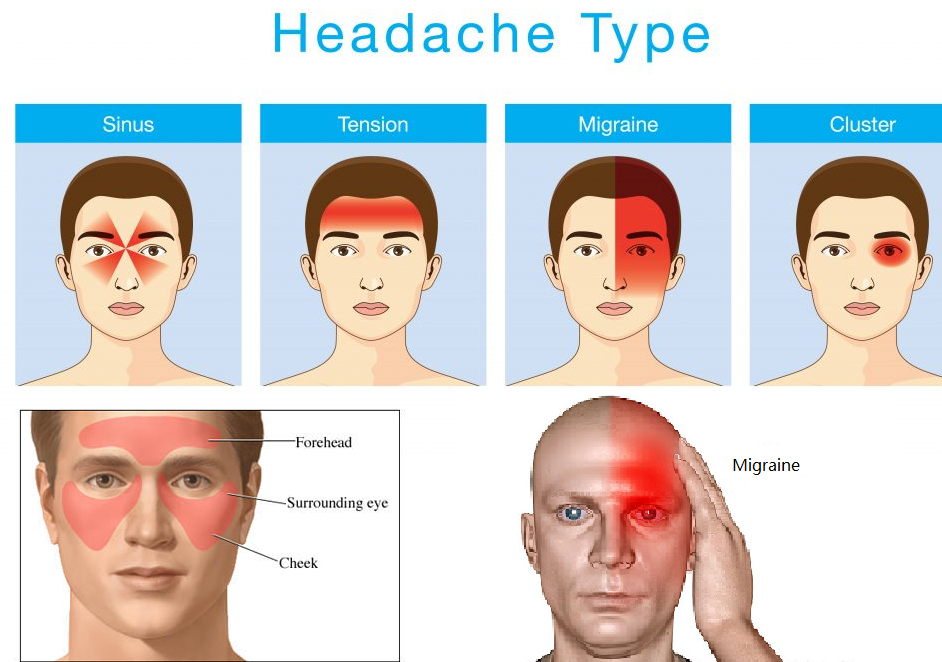Headaches are associated with more than 300 known medical conditions. Sometimes they are caused by the disease, and sometimes the conditions. One of these conditions is sinusitis, which is commonly misdiagnosed.

This is often confused with migraines. Sinus headache symptoms are often caused by full or inflamed sinuses. The sinuses are located in several different places. These include behind the eyes and above the nose. The mucus and tissue in these cavities can be filled or irritated, causing much pain. Sometimes the cavities become so full that create the pressure, in turn, causes pain.
These headaches are called secondary headaches when caused by something like a common cold or some other existing medical condition. When the headache is the condition, known as primary headaches. These are also often caused by something else. Be careful not to select one that will actually worsen the effects.
Paracetamol and aspirin are effective treatment options, but may be exceeded. MOH (medication overuse headache) is something that affects people that overuse of medications, either in-the-counter or prescription.
Sometimes a more serious condition is indicated by a sinus headache. A deviated septum is a genetic disorder that causes the sinus cavities to retain more fluid than they are supposed to. This is a type of sinusitis. If you are diagnosed with this disease, which can be corrected through surgical methods. Treating the symptoms of sinus headaches may be enough to get through the milder cases. Swelling and pain can be reduced by placing a hot or cold compress on the affected area. Various nasal sprays have also proven effective in treating this condition. Be careful not to exceed the recommended dosage, though, or you can actually make the condition worse.
Environmental factors may also contribute to sinus headaches symptoms.
Air travel will often due to pressure changes involved. Allergens and stress can adversely affect the sinuses. Other factors such as weather can also affect the sinuses. Changes in humidity and air pressure can cause inflammation of the sinus cavities that in turn cause headaches.
When full sinus cavities are to blame for this problem, they usually disappear when the drainage of the sinuses. Steam inhalation can sometimes get the draining process began. If that fails, antibiotics are often necessary to reduce the liquid content in the breasts. If you have recurring sinus headaches, sit with your doctor to determine the best treatment for the symptoms of sinus headache options.